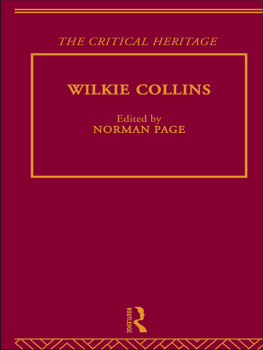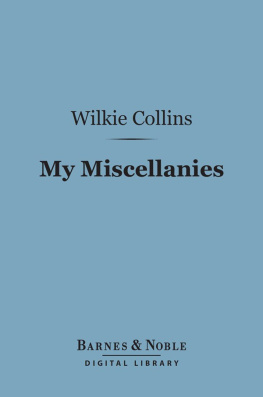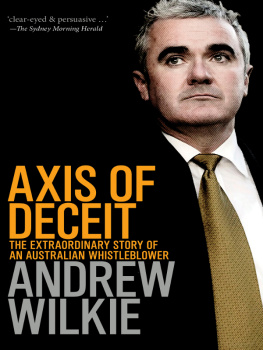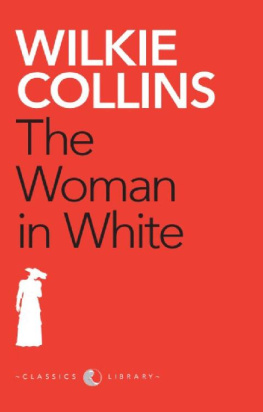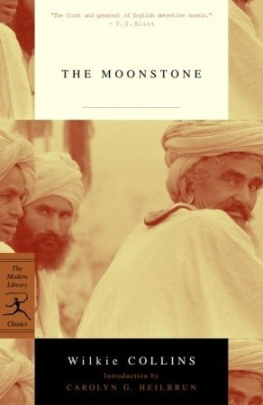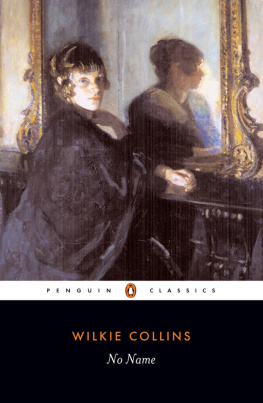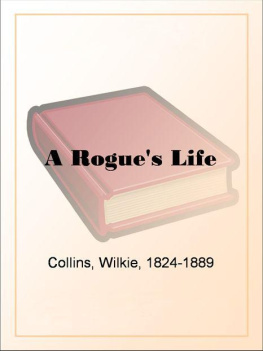Collins Wilkie - Wilkie Collins : the critical heritage
Here you can read online Collins Wilkie - Wilkie Collins : the critical heritage full text of the book (entire story) in english for free. Download pdf and epub, get meaning, cover and reviews about this ebook. City: Boston, London, year: 2003, publisher: Routledge, genre: Detective and thriller. Description of the work, (preface) as well as reviews are available. Best literature library LitArk.com created for fans of good reading and offers a wide selection of genres:
Romance novel
Science fiction
Adventure
Detective
Science
History
Home and family
Prose
Art
Politics
Computer
Non-fiction
Religion
Business
Children
Humor
Choose a favorite category and find really read worthwhile books. Enjoy immersion in the world of imagination, feel the emotions of the characters or learn something new for yourself, make an fascinating discovery.
- Book:Wilkie Collins : the critical heritage
- Author:
- Publisher:Routledge
- Genre:
- Year:2003
- City:Boston, London
- Rating:3 / 5
- Favourites:Add to favourites
- Your mark:
- 60
- 1
- 2
- 3
- 4
- 5
Wilkie Collins : the critical heritage: summary, description and annotation
We offer to read an annotation, description, summary or preface (depends on what the author of the book "Wilkie Collins : the critical heritage" wrote himself). If you haven't found the necessary information about the book — write in the comments, we will try to find it.
Wilkie Collins : the critical heritage — read online for free the complete book (whole text) full work
Below is the text of the book, divided by pages. System saving the place of the last page read, allows you to conveniently read the book "Wilkie Collins : the critical heritage" online for free, without having to search again every time where you left off. Put a bookmark, and you can go to the page where you finished reading at any time.
Font size:
Interval:
Bookmark:
The reception given to a writer by his contemporaries and near-contemporaries is evidence of considerable value to the student of literature. On one side we learn a great deal about the state of criticism at large and in particular about the development of critical attitudes towards a single writer; at the same time, through private comments in letters, journals or marginalia, we gain an insight upon the tastes and literary thought of individual readers of the period. Evidence of this kind helps us to understand the writers historical situation, the nature of his immediate reading public, and his response to these pressures.
The separate volumes in the Critical Heritage Series present a record of this early criticism. Clearly, for many of the highly productive and lengthily reviewed nineteenth- and twentieth-century writers, there exists an enormous body of material; and in these cases the volume editors have made a selection of the most important views, significant for their intrinsic critical worth or for their representative qualityperhaps even registering incomprehension!
For earlier writers, notably pre-eighteenth century, the materials are much scarcer and the historical period has been extended, sometimes far beyond the writers lifetime, in order to show the inception and growth of critical views which were initially slow to appear.
In each volume the documents are headed by an Introduction, discussing the material assembled and relating the early stages of the authors reception to what we have come to identify as the critical tradition. The volumes will make available much material which would otherwise be difficult of access and it is hoped that the modern reader will be thereby helped towards an informed understanding of the ways in which literature has been read and judged.
B.C.S.

First Published in 1974
This edition published in the Taylor & Francis e-Library, 2005.
To purchase your own copy of this or any of Taylor & Francis or Routledges collection of thousands of eBooks please go to www.eBookstore.tandf.co.uk.
11 New Fetter Lane
London EC4P 4EE
&
29 West 35th Street
New York, NY10001
Compilation, introduction, notes and index 1974 Norman Page
All rights reserved. No part of this book may be reprinted or reproduced or utilized in any form or by any electronic, mechanical, or other means, now known or hereafter invented, including photocopying and recording, or in any information storage or retrieval system, without permission in writing from the publishers.
British Library Cataloguing in Publication Data
ISBN 0-203-19775-5 Master e-book ISBN
ISBN 0-203-19778-X (Adobe eReader Format)
ISBN 0-415-13464-1 (Print Edition)
The Critical Heritage series collects together a large body of criticism on major figures in literature. Each volume presents the contemporary responses to a particular writer, enabling the student to follow the formation of critical attitudes to the writers work and its place within a literary tradition.
The carefully selected sources range from landmark essays in the history of criticism to fragments of contemporary opinion and little published documentary material, such as letters and diaries.
Significant pieces of criticism from later periods are also included in order to demonstrate fluctuations in reputation following the writers death.
Wilkie Collins was one of the most popular novelists of the second half of the nineteenth century; yet of all his large outputthe results of forty years spent in the pursuit of literature as a careeronly two novels have achieved undisputed classic status. A handful of others (Armadale, for instance, and No Name) still retain some kind of currency; the rest are forgotten by all except the most dedicated specialists. In spite of this, the contemporary reception of his books offers much of interest to the student of English fiction, and of its critics and its reading public, between 1850 and 1890. As a young writer, Collins was widely reviewed in journals of the highest standing and was frequently hailed as a novelist of exceptional promise; his early novels were given close and serious attention, and he was held up for comparison with Dickens, Thackeray, Charlotte Bront, Mrs Gaskell, and others. He became, and remained, one of the most widely-read authors of his day throughout the English-speaking world, and he was widely translated. Though there were fluctuations in popularity during his long career, these were nothing like so dramatic as has sometimes been suggested. More significantly, however, there were at times disparities between the enthusiasm for his work manifested by the book-buying and book-borrowing public and the pronouncements of the usually anonymous arbiters of taste who reviewed for the leading newspapers and journals. In a shrewd obituary assessment (28 September 1889), the Spectator suggested that the position of Mr. Wilkie Collins in literature was a very unusual one. He was an extremely popular writerdeservedly popular, as we thinkwho was not very highly esteemed. That is an odd position, and we do not know that it has been quite satisfactorily explained. If this is not the whole truth about Collinss reputation, it is certainly an interesting and suggestive part of it. What it demonstrates is that his novels posed certain distinctive critical problems which made the placing of them a delicate and controversial operationa task for which Victorian reviewers were not always adequately equipped.
As the acknowledged leader of what came to be known as the sensational novel, he unavoidably associated himself with the purveyors of a proliferating sub-literature, feeble in quality and ephemeral innature; yet there were, as Dickens and others were quick to recognize, unmistakable qualities in Collinss novels which raised them high above most other specimens of the class to which they appeared to belong. In his hands, fictional sows ears were apt to turn out as silk purses; and the reviewer was faced with a problem which may be put briefly in some such form as Under what circumstances can a third-rate literary genre accommodate a first-rate work? The modern reader, trained by such modern instances as the thrillers of Graham Greene, takes the paradox in his stride; but Victorian men of letters, many of them with a classical background, entertained stricter notions of a hierarchy of genres, and felt a genuine puzzlement at the difference between the kind of novel Collins appeared to be writing and the powerful and unignorable response of the reader.
Again, he was generally admitted even by hostile critics to be a supremely skilful fashioner of plots, and this inevitably raised the question of the importance of plot in the novel and its relationship to other elementsa question which had had a long innings in criticism of the drama, but which the nineteenth century found itself called upon to grapple with in relation to fiction. Yet again, Collinss remarkable experiments in narrative technique, though they offer no problems to the competent undergraduate of today, provided another test of critical understanding which Victorian reviewers did not always pass with honours. As late as 1889 a writer in the Academy could still urge that unbroken sequence of narrative is one of the greatest charms of a work of fiction, and the originality of Collinss use of multiple viewpoints had evidently taken his contemporaries by surprise.
Font size:
Interval:
Bookmark:
Similar books «Wilkie Collins : the critical heritage»
Look at similar books to Wilkie Collins : the critical heritage. We have selected literature similar in name and meaning in the hope of providing readers with more options to find new, interesting, not yet read works.
Discussion, reviews of the book Wilkie Collins : the critical heritage and just readers' own opinions. Leave your comments, write what you think about the work, its meaning or the main characters. Specify what exactly you liked and what you didn't like, and why you think so.

